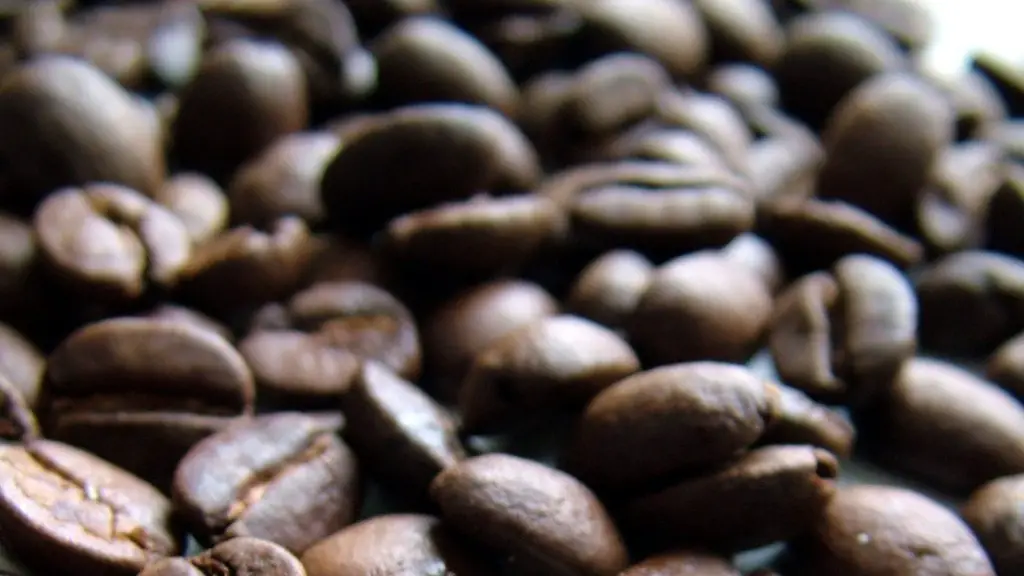Coffee is a beverage that many of us enjoy, but can a stroke patient consume it? Coffee can be both beneficial and detrimental to a stroke patient, depending on factors such as the severity and timing of the stroke. It can providea variety of health benefits, such as improved alertness, and is linked to a reduced risk of some chronic diseases. Additionally, some components of coffee can render it potentially harmful to stroke patients and their recovery.
Types of Stroke – Ischemic and Hemorrhagic
Before engaging in any activities or habits, it is important for one to understand the type of stroke they have as this will determine the effects of such activities and habits on their health. There are two main types of stroke: ischemic stroke and hemorrhagic stroke.
Ischemic stroke occurs when a blood vessel supplying oxygen and nutrients to the brain is blocked, often due to a blood clot. This causes a decrease in blood flow to the affected area and can cause permanent neurological damage if not treated quickly.
Hemorrhagic stroke happens when a blood vessel in the brain ruptures, causing an excessive leakage or flooding of blood into the brain. This can lead to a buildup of pressure that damages tissue and causes neurological damage. Hemorrhagic stroke is particularly risky and can result in death if not treated urgently.
Benefits From Coffee for Stroke Patients
Coffee can be beneficial for stroke patients. It contains antioxidants, which can help in reducing the damage caused by free radicals, and can also help protect from some types of cancer. Drinking coffee has also been linked to a reduced risk of certain chronic diseases, such as type 2 diabetes. The caffeine present in coffee can have a positive effect on alertness and concentration, which may help improve quality of life for stroke patients. Additionally, coffee is packed with many essential vitamins and minerals and can provide a steady supply of energy.
Risks of Drinking Coffee for Stroke Patients
Although coffee has many potential benefits, drinking it can also present some risks, especially for stroke patients. Coffee can increase blood pressure and heart rate, therefore those with existing high blood pressure or heart disease are advised to avoid drinking coffee or limit their consumption. Additionally, coffee may cause sleeplessness, which can delay the recovery process of a stroke patient. Also, individuals with a very recent history of a stroke or other severe medical conditions should avoid drinking coffee as it could worsen their symptoms.
Moderation is Fundamental
As with everything else in life, moderation is key for stroke patients when drinking coffee. Depending on the severity and timing of the stroke, an individual’s physician may recommend drinking no more than two cups per day. For those not taking any medications that may interact with caffeine, a cup of coffee with breakfast can provide an array of health benefits.
It is important to note that what may be beneficial for one individual may not be beneficial for another. Thus, it is best for individuals to consult with their doctor and make an informed decision based on their medical history and current conditions.
Coffee Alternatives Available For Stroke Patients
If coffee drinking is not recommended for a particular individual, there are many alternatives available. Herbal tea can provide a similar array of antioxidants and other health benefits, with less caffeine than a cup of coffee. Green tea has been found to reduce the risk of stroke as well. Alternatively, decaffeinated coffee is available, which can provide the desired energy with less caffeine. If none of these alternatives are suitable, consider engaging in other activities that could provide similar health benefits such as mindfulness practices or yoga.
Impact of Genetics on Stroke
Genetics do play a role in stroke risk and so it is important for individuals to understand their family history and take into account any genetic factors that may influence their health. Certain variations in some genes have been found to increase the risk for stroke. For example, the factor V Leiden gene, located on chromosome 1, increases the formation of blood clots, thus elevating the risk of stroke.
Individuals who are aware of any genetic predispositions they may have should consider talking to their doctor and carefully consider any lifestyle habits that may further increase their risk, such as excessive alcohol consumptions or smoking.
People With a Stroke History & Coffee
For individuals who have a history of stroke, drinking coffee can still be beneficial depending on the type of stroke, circumstances around the stroke occurrence, and on the opinions of their doctor. In this case, it is important to still minimize their coffee consumption and use moderation to ensure that any potential risks are avoided. Although coffee can present some risks, studies have found that it can reduce the rate, severity and recurrence of stroke in some individuals when done in moderation. Thus, it is important to discuss any potential changes to one’s diet and lifestyle with their doctor if they have a history of stroke.
Additional Considerations
It is important to take other factors into consideration when deciding whether or not to drink coffee. Individuals with high cholesterol, diabetes or other cardiovascular conditions should seek advice from their doctor before deciding to drink coffee. Additionally, individuals should consider the type of coffee they are drinking, as some may contain certain additives that could potentially be harmful.
It is also important to consider the timing of drinking coffee. Drinking coffee on an empty stomach can increase the risk of experiencing headaches or other side effects. The best time to drink it is with food such as breakfast, as this reduces the effects of the caffeine. In addition, drinking coffee too late in the day can have a negative effect on sleep quality, thus delaying recovery.
Supplemental Methods To Cope With Stroke
In addition to monitoring the types of beverages one consumes, it is important to engage in other activities that could improve quality of life and well-being. Engaging in activities such as mindfulness or yoga can help with relaxation and decrease stress levels, while also providing physical benefits.
Social support is also a vital component to stroke recovery and quality of life. It is important to build a support network of family and friends who can provide emotional support in times of need. They can also offer practical help and advice to make the recovery process easier.
In addition, engaging in physical activities such as walking or light exercise can improve muscle tone and overall physical health. Depending on the individual’s physical abilities, other activities such as swimming or cycling can also provide many health benefits.
Summary of Benefits and Risks of Coffee for Stroke Patients
Coffee can present both benefits and risks for stroke patients depending on the severity, timing and type of stroke the individual has. Coffee can provide many health benefits such as improved alertness and a reduced risk of certain chronic diseases. However, it is important to be aware of potential risks such as an increase in blood pressure and sleeplessness. Thus, it is best to consult a doctor before engaging in activities such as drinking coffee.
Conclusion
To conclude, coffee can be a beneficial and enjoyable addition to a stroke patient’s diet. As with any dietary changes, it is important to understand the type of stroke an individual has and then consider any potential risks or benefits that drinking coffee may have. Additionally, it is important to ensure that any additional lifestyle habits or activities are done in moderation to maximize the potential benefits while minimising any potential risks.




